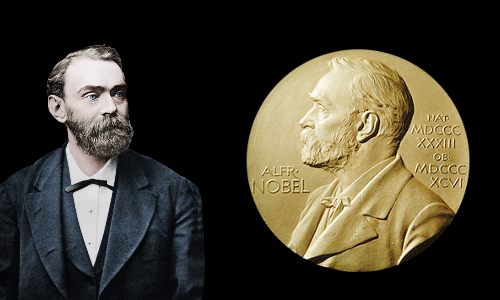How Will You Be Remembered?

What do Bob Dylan, Ernst Hemingway, and Jimmy Carter have in common?
They are all Nobel Prize winners.
Since 1901, the Nobel Foundation has given out awards to the world’s most outstanding achievers in five categories: Physics, Chemistry, Medicine, Literature, and Peace. (Economics was added in 1968.) So far, just under a thousand highly influential figures have received the awards for their history-making, epoch-changing, and even life-saving work.
The genius of the winners was apparent early on: In 1904, Ivan Pavlov was awarded the Noble Prize in Medicine. In 1911, Madame Curie won for Chemistry. In 1921, Albert Einstein won in Physics. And the prestigious list goes on and on—from Albert Schweitzer to Barack Obama.
There at two winners that are notable for me…
In 1964, Dr. Martin Luther King Junior won the Nobel Peace Prize for his landmark work during the civil rights movement. Notably, he fought to peacefully end racial discrimination in America through deeply moving speeches and nonviolent protests. His Nobel came just one year after his “I Have a Dream” speech from the Lincoln Memorial that still resonates today. Martin Luther King was just 35 years old when he received the award, making him the youngest person to ever be given a Nobel Prize.
In 1979, the Roman Catholic nun Mother Teresa also won the Nobel Peace Prize. She was recognized for establishing the Missionaries of Charity in Calcutta in 1950 and extending her humanitarian relief across India and beyond. The Nobel committee praised Mother Teresa “for her work in bringing help to suffering humanity,” partly by building homes for orphans, lepers and the terminally ill throughout the most destitute and deprived areas of Calcutta. The order she founded carries on her work.
It’s hard to imagine our world without the Nobel Prize. And yet, it’s a miracle it exists at all. The story behind its origin sounds like a movie script…
Born into a Swedish family of engineers in 1833, Alfred Nobel was a chemist, engineer and prolific inventor. Early on, Nobel purchased an iron and steel mill, and turned it into a highly lucrative weapons manufacturer.
Nobel amassed a fortune during his lifetime, with most of his wealth coming from his 355 inventions, of which dynamite is the most famous.
An Unpleasant Surprise.
In 1888, the wealthy and successful Nobel was astonished to read his own obituary in a French newspaper. Titled “The Merchant of Death Is Dead,” the scathing article condemned Nobel for his invention of dynamite, stating: “The merchant of death is dead… Dr Alfred Nobel, who became rich by finding ways to kill more people faster than ever before, died yesterday.”
Turns out, it was Alfred’s brother Ludvig who had died—Alfred’s obituary was eight years premature. But the negative synopsis of his life devastated Nobel, worrying him deeply about how he would be remembered.
In fact, it inspired him to change his legacy, if possible.
Like many of those whom I coach, Alfred Nobel was a leader, an entrepreneur and an influencer in his time. But that wasn’t enough. He was so moved by seeing a “preview” of how he’d be viewed by history, that he set aside the bulk of his estate to establish the Nobel prizes.
Nobody Saw this Coming.
In 1896, Alfred Nobel died at his villa in Italy—this time for real—from a cerebral hemorrhage. He was just 63 years old.
When his last will and testament were read, many of his family and peers were shocked. To widespread astonishment, Nobel had specified that his fortune would be used to create a series of international prizes for those who “confer the greatest benefit on humankind.”
Amazingly, this so-called “war profiteer” bequeathed 94% of his total assets to reward and advance the work of world peace, artistic merit, and scientific breakthroughs. His initial gift was the equivalent of $250 million to fund the first set of prizes, with more to be given annually in perpetuity.
As leaders, we too should consider our legacy and how those who follow us perceive us even now. Nobel had the rare opportunity to evaluate his life near its end—and then lived long enough to improve that assessment.
Today, Alfred Nobel is known and revered worldwide for his celebrated Nobel Prize Foundation. Less well known is that before he updated his resume, he invented the most lethal munitions and weapons of his era.
Let’s do a “legacy check” on ourselves.
Have you ever wondered what difference your life and leadership might make? Have you considered ways to change society for the better? Have you asked yourself how your life can be of ultimate lasting value?
As leaders, we need to regularly explore and review how we can lead lives of positive impact—and inspire others to do the same.
I would welcome the chance to informally discuss these and other possibilities with you whenever it’s convenient. If that sounds good, click here.
There’s an old saying, “The things you do for yourself are gone when you’re gone. But the things you do for others remain as your legacy.”
